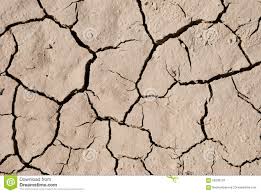NASA – good science but terrible communication about Sea Level Rise
 I really like NASA. As nearly everyone agrees, they do great science — both about the cosmos and about our home planet. Having gotten that well deserved compliment out in front, I am screaming mad at something they just published.
I really like NASA. As nearly everyone agrees, they do great science — both about the cosmos and about our home planet. Having gotten that well deserved compliment out in front, I am screaming mad at something they just published.
Headlines from the very reputable SCIENCE magazine, to the climate change denying tripe are carrying the headlines such as:
“Thirsty continents are slowing down expected sea level rise, scientists say”
“A decade of sea level rise slowed by climate-driven hydrology”
Some of the climate-denier or “skeptic” media were much more aggressive, suggesting that NASA says that climate change would not cause rising sea level — but I will not even support those disinformation sites with a link.
Here is what the actual NASA story says, and where it is INCREDIBLY misleading, to the point of being irresponsible.
- Essentially it says that global warming (a/k/a climate change) — warmer than in centuries — has dried the soils so that they are absorbing more water.
- That water would have gone to the ocean, raising sea levels.
- Overall the effect is about 20% of the average global sea level rise.
Those facts are fair and decent science. But the way it’s all presented, leads most readers to believe that climate change could slow rising sea level which is just flat out WRONG! [sound the Buzzer.]
This is what good journalism would have said:
- The Earth is getting drier, even parched, as the planet warms. The dry soils are absorbing more water in many locations. That is reducing the amount of water that would find its way to the sea but there is a limit to this phenomenon.
- Global sea level is now rising about 3 mm a year, about an eighth of an inch a year, but NASA measurements show the rate of sea level rise is accelerating rapidly when looked at on a scale of decades.
- Presently the dry soil absorption is reducing global sea level rise by roughly 20%, or about half a millimeter — roughly the thickness of a few sheets of paper, barely measureable.
- That effect is both temporary (as the article stated), and relatively immaterial in the larger picture of the ice sheets on Greenland and Antarctica melting and accelerating. This absorption phenomenon is almost certainly limited to fractions of an inch, where the sea level rise from the melting glaciers and ice sheets will be many feet of height.
- This finding is important in terms of accurately reconciling sea level measurements for scientists at the sub millimeter level, but should not be promoted to the public unless it is carefully framed, as it could be taken out of context to erroneously suggest that a warming planet will reduce global sea level rise.
My note to NASA — (and to some degree shared with SCIENCE Magazine):
You have done great things for science, including the issue of rising sea level. With the article cited above, however, you have caused very serious misinformation and misunderstanding, leading diverse audiences to believe that a warming planet will somehow have less of a problem with rising sea level. However unintended that is very damaging to the advance of science, to the public’s grasp of the risk of rising sea level. It will very likely detract from the urgency and resolve to start adapting to rising sea level ASAP.
You can and must do better.

